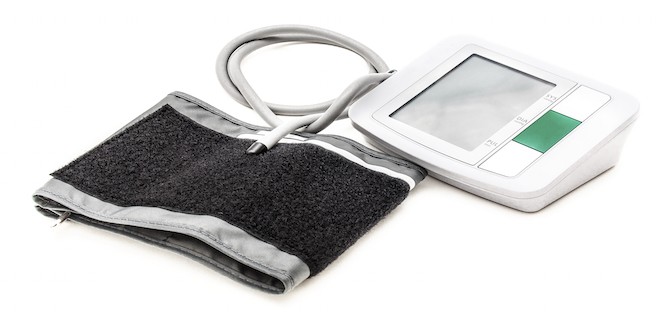Medications for high blood pressure can help prevent serious complications. Since blood pressure cannot be 'felt', it is harder to accept the fact that you need to take a medication on a regular basis, as usually there are no symptoms.
What happens in the body when blood pressure is high?
In someone with high blood pressure, blood is pumped through the network of blood vessels at a high force. Over time the muscle and the semi-flexible tissue in the walls of the blood vessels are stretched beyond their health limits. Changes listed below start to happen, and these will greatly increase their risk of stroke and/or heart attack.
- Vascular weakness: weak places in the blood vessels pose a risk factor for stroke or formation of aneurysms
- Vascular scarring: a risk factor for plaque formation
- Increased risk of a blood clot
- Increased plaque build-up: the heart has to pump harder through narrowed blood vessels. If it becomes blocked, heart attack or stroke may result
- Tissue and organ damage from narrowed or blocked arteries
- Increased workload for the heart: may result in heart failure
How is high blood pressure managed?
Hypertension is best managed as a triad of healthy eating, increased activities and medications. See blogs from other writers on healthy eating and physical activity.
Antihypertensives are drugs commonly prescribed to help lower blood pressure when healthy eating and regular physical activity alone have not succeeded. They do this by helping relax and expand (dilate) blood vessels, allowing blood to flow more easily or by acting on the kidneys to help increase urination.
Some of the more common antihypertensives include:
- Diuretics: they help the body get rid of excess sodium (salt) and water and help control blood pressure.
Examples of diuretics are: furosemide, hydrochlorthiazide, indapamide, metolazone, amiloride, spironolactone, triamterene
- Angiotensin-converting enzyme (ACE) inhibitors: Angiotensin is a chemical that causes the arteries to become narrow, especially in the kidneys but also throughout the body. ACE inhibitors help the body produce less angiotensin, which helps the blood vessels relax and open up. This in turn, lowers blood pressure.
Examples of ACE inhibitors are: captopril, enalapril, fosinopril, lisinopril, perindopril, ramipril, trandolaril
- Angiotensin-2 receptor blockers (ARB): These drugs block the effects of angiotensin. ARBs block the receptors so the angiotensin fails to constrict the blood vessel. This means blood vessels stay open and blood pressure is reduced.
Examples of ARBs are: candesartan, irbesartan, losartan, telmisartan, valsartan
- Beta-blockers: they reduce the heart rate, the heart's workload and the heart's output of blood, which lowers blood pressure.
Examples of beta blockers are: acebutolol, atenolol, bisoprolol, carvedilol, metoprolol, nadolol, pindolol, propranolol, sotalol, timolol
- Calcium channel blockers: When calcium enters the smooth muscles of the heart and the arteries, it causes a stronger and harder contraction. By decreasing the calcium, the hearts' contraction is not as forceful. Calcium channel blockers relax and open up narrowed blood vessels, reduce heart rate and lower blood pressure.
Examples of calcium channel blockers are: amlodipine, diltiazem, felodipine, verapamil
If using one medication at the optimal dose does not achieve the desired blood pressure target, your doctor will add one or more antihypertensives. It is entirely possible for someone to be taking several different antihypertensives (they have different mechanisms of actions) especially in those with kidney disease or a long history of hypertension.
As the pill burden increases, so does the complexity of the medication regimen. Please refer to my previous blogs on how best to manage medication taking to ensure you are taking the medications correctly.
 Diabetes Care Community Learn, connect and care
Diabetes Care Community Learn, connect and care




